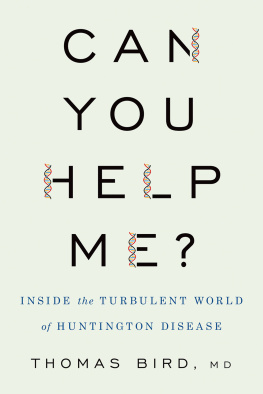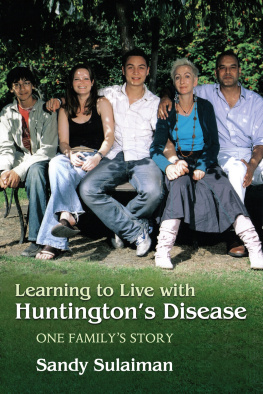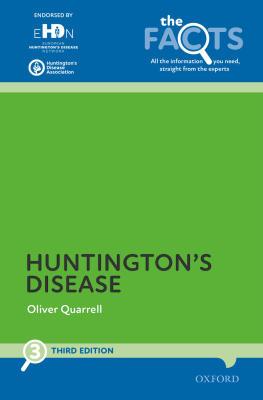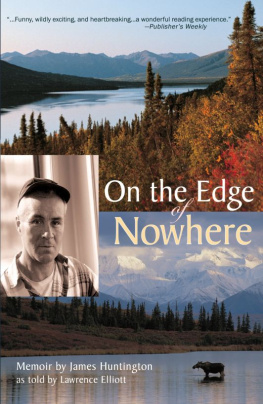CAN YOU HELP ME?

Oxford University Press is a department of the University of Oxford. It furthers the Universitys objective of excellence in research, scholarship, and education by publishing worldwide. Oxford is a registered trade mark of Oxford University Press in the UK and certain other countries.
Published in the United States of America by Oxford University Press
198 Madison Avenue, New York, NY 10016, United States of America.
Oxford University Press 2019
All rights reserved. No part of this publication may be reproduced, stored in a retrieval system, or transmitted, in any form or by any means, without the prior permission in writing of Oxford University Press, or as expressly permitted by law, by license, or under terms agreed with the appropriate reproduction rights organization. Inquiries concerning reproduction outside the scope of the above should be sent to the Rights Department, Oxford University Press, at the address above.
You must not circulate this work in any other form and you must impose this same condition on any acquirer.
Library of Congress Cataloging-in-Publication Data
Names: Bird, Thomas (Thomas D.) (Neurologist), author.
Title: Can you help me? : inside the turbulent world of Huntington disease / by Thomas Bird.
Description: New York, NY : Oxford University Press, [2019] | Includes bibliographical references and index.
Identifiers: LCCN 2018027961 | ISBN 9780190684228 (alk. paper) | ISBN 9780190684242 (epub)
Subjects: | MESH: Huntington Disease | Case Reports
Classification: LCC RC394.H85 | NLM WL 359.5 | DDC 616.85/1dc23 LC record available at https://lccn.loc.gov/2018027961
This material is not intended to be, and should not be considered, a substitute for medical or other professional advice. Treatment for the conditions described in this material is highly dependent on the individual circumstances. And, while this material is designed to offer accurate information with respect to the subject matter covered and to be current as of the time it was written, research and knowledge about medical and health issues is constantly evolving and dose schedules for medications are being revised continually, with new side effects recognized and accounted for regularly. Readers must therefore always check the product information and clinical procedures with the most up-to-date published product information and data sheets provided by the manufacturers and the most recent codes of conduct and safety regulation. The publisher and the authors make no representations or warranties to readers, express or implied, as to the accuracy or completeness of this material. Without limiting the foregoing, the publisher and the authors make no representations or warranties as to the accuracy or efficacy of the drug dosages mentioned in the material. The authors and the publisher do not accept, and expressly disclaim, any responsibility for any liability, loss or risk that may be claimed or incurred as a consequence of the use and/or application of any of the contents of this material
DEDICATION
Amelia Susman Schultz, PhD, received her doctorate in anthropology from Columbia University in 1943 (mentored by Franz Boaz and Ruth Benedict). It took 33 more years for her original dissertation to be published because it unflinchingly documented the ongoing abuse of Native American tribes in northern California. Thwarted by a career in anthropology, she moved to Seattle and in 1960 started her pioneering career as the first social worker for the new Medical Genetics Division at the University of Washington School of Medicine. In that capacity for more than 30 years she focused on assisting hundreds of families struggling with Huntington disease. Many of those families and their descendants are described in this book. In recognition of her generous personal commitment to Huntington disease, this book is dedicated to Amelia, still alive at age 103.
CONTENTS
What is Huntington disease (HD)? It begins subtly, casually, innocently in barely noticeable little steps. Like a cat quietly stalking an unsuspecting sparrow, except often the human sparrow is not unsuspecting, it just has no means of escape. A quick twitch of a hand or shoulder, a little grimace that disappears. A brief loss of temper that quickly fades. Slowly, but progressively and inexorably, the disease adds symptoms and disabilities until the person ends in something like Shakespeares last stage of humankind, sans walking, sans talking, sans swallowing and eating.
Huntington disease is a bit like Alzheimer disease, but not exactly. It is a bit like Parkinson disease, but not exactly. It is a bit like autism, bipolar disease, and schizophrenia, but not exactly. It is similar to all of these diseases, but also unique. I have seen a 5-year-old with HD and a 91-year-old with HD. This age span never happens with Alzheimer or Parkinson disease or with schizophrenia. Finally, this brain disease is absolutely genetic. Families must struggle with the knowledge that children and grandchildren are at risk for the very disease that now afflicts a loved one. Ultimately, HD is fatal, usually about 15 years after the first appearance of symptoms. Death often comes at age 55 or 45 or even 35.
Huntington disease is usually referred to as a rare degenerative disease of the brain, but it is so much more than that. One of my motivations for describing HD is personal. Over a 40+ year career I have seen more than 1,000 persons with this disease and have been constantly amazed, puzzled, distressed and impressed by the trials and tribulations of these families coping with it. Dealing with HD has been so moving, so unsettling and so challenging for me that I felt compelled to write about it. Setting these stories down has been therapeutic for me, but I hope it will be both interesting and enlightening for you. Although HD is not common, it is also not rare. Your neighbor, coworker or family member may have HD and you are simply unaware.
Although it is uncommon, HD has medical, scientific, social and public health implications far beyond its relative infrequency in the population. It forces us to consider the relationship between the brain and thinking and behavior. It is a model for other more common brain diseases such as Alzheimer and Parkinson. It compels us to contemplate how we as individuals and communities deal with dysfunctional families and with serious mental illness.
The approach to describing HD taken in this book will be in three stages. First, there is a brief introduction to the history of HD, beginning with its identification as a clinical disease more than 140 years ago, along with an orientation regarding genetic testing for the disease and a brief description of the relevant brain anatomy. There is also a comparison of HD with other similar brain diseases. Although HD itself is relatively uncommon, its manifestations significantly overlap with those of much more common brain diseases and, therefore, its implications for our society are greatly amplified. I view HD as the canary in the mine of persons severely impaired with chronic brain diseases. What is happening to the people described in this book is also occurring on a much greater scale to those with other serious mental disturbances. All these disorders represent different ways in which the brain disconnects.
Second, the heart of this book is a series of vignettes of patients and families struggling with the experience of HD. The vignettes will not be technical or scientific. They will show the disease as it happened in real time to real people. The extraordinary variability of the disease, its frequent anguish and occasional bright spots will be amply described. The vignettes are divided into four overlapping, but roughly distinct topics of (1) legal and incarceration issues, (2) coping strategies, (3) effects on marriage and family, and (4) difficult behavior and physical problems.













